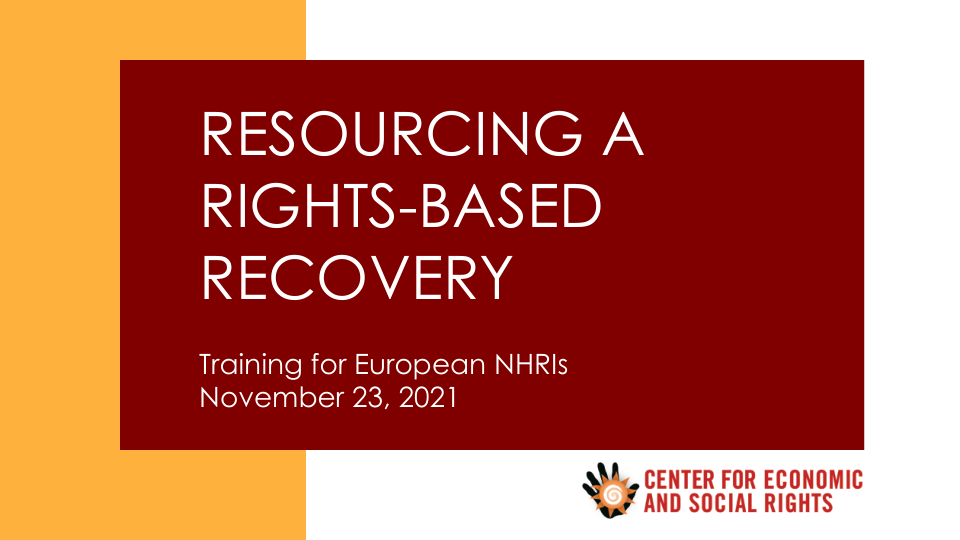In late November, the United Nations Office of the High Commissioner for Human Rights and the European Network of National Human Rights Institutions organized a training workshop on how European national human rights institutions (NHRIs) can analyze recovery plans through a human rights lens. Our Director of Strategy and Learning, Allison Corkery, participating in the training. Drawing on our experience of advancing rights-based fiscal policy, her presentation outlined some of the substantive issues to be looking out for in recovery plans and suggested practical ways of doing so. It prompted an interesting discussion about the challenges NHRIs face in engaging in fiscal policy debates and how these might be overcome.
Members of the European Union can receive funding under the Recovery and Resilience Facility. Part of the “largest stimulus packaged ever financed in Europe”, the Facility makes more than €720 billion available in loans and grants. To access this funding, Member States have to adopt COVID-19 National Recovery and Resilience Plans (NRRPs). NRRPs aim to mitigate the economic and social impact of the pandemic and make European societies more sustainable, resilient and better prepared for the challenges and opportunities of the green and digital transitions. Despite their clear impact on people’s rights—particularly their socioeconomic rights—very few NHRIs participating in the workshop had been involved in their development and were still thinking through how they might engage in their implementation.
A key challenge with the plans is that the remain quite “high level”. In other words, they make policy commitments that sound progressive, on paper, but provide little detail about how they’ll be implemented, in practice. There is guidance available to NHRIs to interrogate such plans further. OHCHR has developed a Checklist for a Human Rights-Based Approach to Socio-Economic Country Responses to COVID-19, for example. But, building up familiarly with and confidence to use the research methods necessary to answer the questions set out in the checklist is also critical. The workshop was an opportunity to do this with a key stakeholder and we look forward to others in the future.

